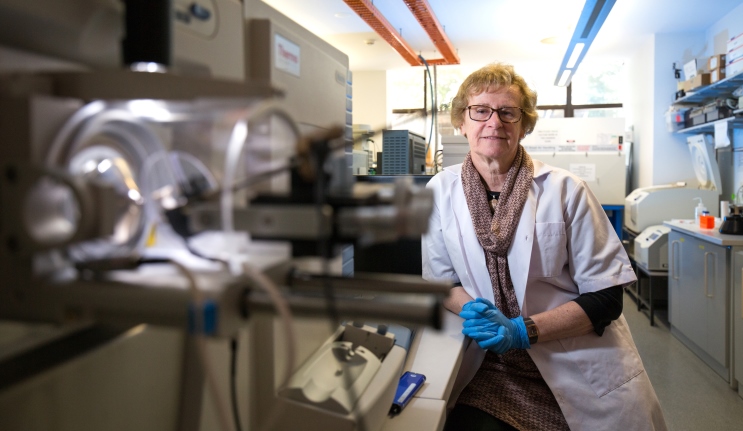
RESEARCH NEWS
Innovative technologies
In the final of our series on Macquarie’s five future-shaping research priorities, we are exploring Innovative Technologies, which focuses on advancing our interconnected world with frontier technologies, systems, designs and creative practice.
Recently, Professor Nicolle Packer won a 2015 Research Excellence Award for her work understanding the role carbohydrates play in the spread of disease.
“I’ve been working for a very long time on the analysis of carbohydrates,” Professor Packer says. “We’re finding that these sugars are not just important in our diet, but more importantly, they’re completely coating the cells and have therefore evolved in just about every disease in humans, such as cancer, cystic fibrosis, infertility, influenza and microbial infection. “
Compared to proteomics, which has the genomic template from which to read the protein sequence, researchers in Professor Packer’s field of glycomics, which is not coded for by the genome, are restricted by a lack of experimental and informatics tools to explore the changes that occur to the sugars that adorn the outside of all cells.
Professor Packer’s team is working to change this. They are one of the first research groups to link glycomics to the proteomics and genomics revolution in biological research. Data from all over the world is coming together in her team’s project, UniCarbKB, and offering new insights into how sugars attach to the surface of cells and interact to bring about diseases.
By combining innovative technologies and the informatics needed to analyse data, the project makes it possible to develop new targets and diagnostics for these diseases.
“The US, EU and UK are recognising that this part of biochemistry is important. Macquarie is integral to international initiatives to make this integrated knowledge base available.
“I truly believe these molecules are important in the way our bodies function and how they stop functioning,” Professor Packer says. “As one of my post-docs has said to me, ‘It’s all about sugars. It always was and always will be’.”
I this work should clarify disease and food relationships further.